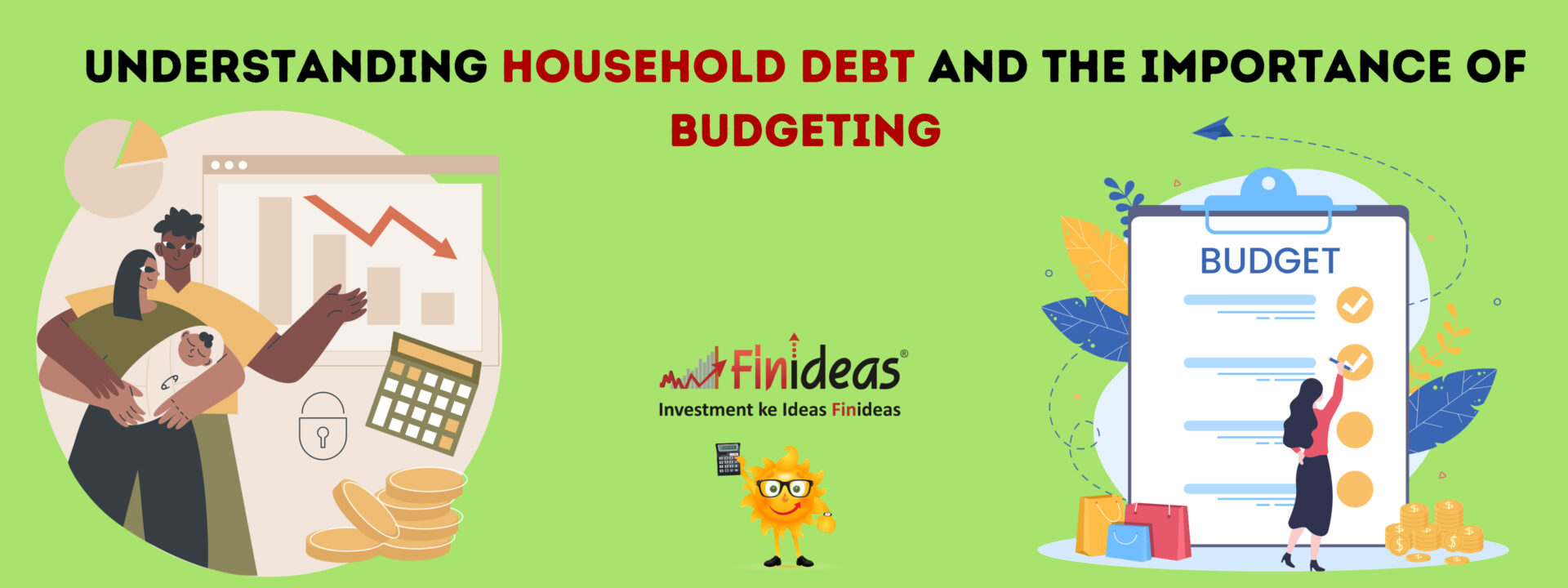Understanding Household Debt and the Importance of Budgeting
Household debt, an integral part of financial management, plays a crucial role in the financial well-being of individuals and nations alike. In this blog, we’ll delve into what household debt is, its impact on the economy, and how debt management strategies can help individuals achieve their financial goals. Additionally, we’ll emphasize the importance of budgeting in your financial journey.
Household Debt: A Closer Look
Household debt encompasses all the financial obligations individuals owe, including loans (like mortgages and consumer credit) and other accounts payable. It’s a critical indicator of a nation’s financial health, measured as a percentage of net household disposable income.
As of June 2023, the household debt as a percentage of GDP in India stood at 36.5%, down from 40.7% in March 2020. The total household debt in India reached $486.7 billion in March 2023, a significant increase from $441.0 billion in the previous year.
The Implications of High Debt-to-GDP Ratios
Extravagantly high debt-to-GDP ratios can have severe consequences. These ratios can deter creditors from lending money, and in the event of a debt default, they may trigger financial panic in both domestic and international markets. The higher the debt-to-GDP ratio, the higher the risk of default.
Can you think of any real-world examples where a country’s high debt-to-GDP ratio led to financial instability? Comment Down Below
Importance of Budgeting in Achieving Financial Goals
What is Budgeting?
Budgeting is a structured financial plan that forecasts income and expenses based on various internal and external factors. It provides a roadmap for managing your finances effectively.
What are Financial Goals?
Financial goals are specific milestones you aim to achieve, encompassing earning, saving, investing, and spending. They align with your short-term, medium-term, and long-term financial plans.
Financial Goals are so important for your financial freedom, So for that you must visit Index Long Term Strategy and Also can attend our Webinar – Index Long Term Strategy.
Have you set any financial goals for yourself, and if so, what are they?
Why Budgeting Matters
Budgeting serves as a cornerstone in achieving your financial goals for several reasons:
- Financial Clarity: It provides a clear understanding of your income and expenses, enabling you to make informed financial decisions.
- Goal Setting: Budgets help you set specific financial goals and allocate resources to achieve them.
- Control Over Spending: Budgets help you track expenses and identify areas to cut back, reducing the risk of debt.
- Emergency Fund: They allow for provisions for unexpected expenses, providing a safety net.
- Debt Management: Budgets facilitate debt reduction, a crucial financial goal for many.
- Savings and Investments: Budgets ensure you allocate money for long-term financial objectives.
- Financial Discipline: They reduce impulsive spending and encourage you to prioritize goals.
- Financial Accountability: Budgets hold you accountable for your financial decisions.
- Stress Reduction: Having a budget reduces financial stress and provides peace of mind.
- Long-Term Financial Security: Budgeting helps build a solid financial foundation.
Which aspect of budgeting do you find most challenging in achieving your financial goals?
In conclusion, budgeting is a vital component of financial planning. It empowers you to take control of your financial destiny and work towards a more secure and prosperous future. Remember, financial planning is an ongoing process that requires regular assessment and adjustment to adapt to changing circumstances.
Remember, achieving financial goals and managing debt effectively requires careful planning and discipline. So, take the time to set your financial goals and create a budget to work toward them. Your financial future is in your hands, and with the right strategies, you can achieve the financial stability and security you desire.
Happy Investing!
This article is for education purpose only. Kindly consult with your financial advisor before doing any kind of investment.



Very useful knowledge..